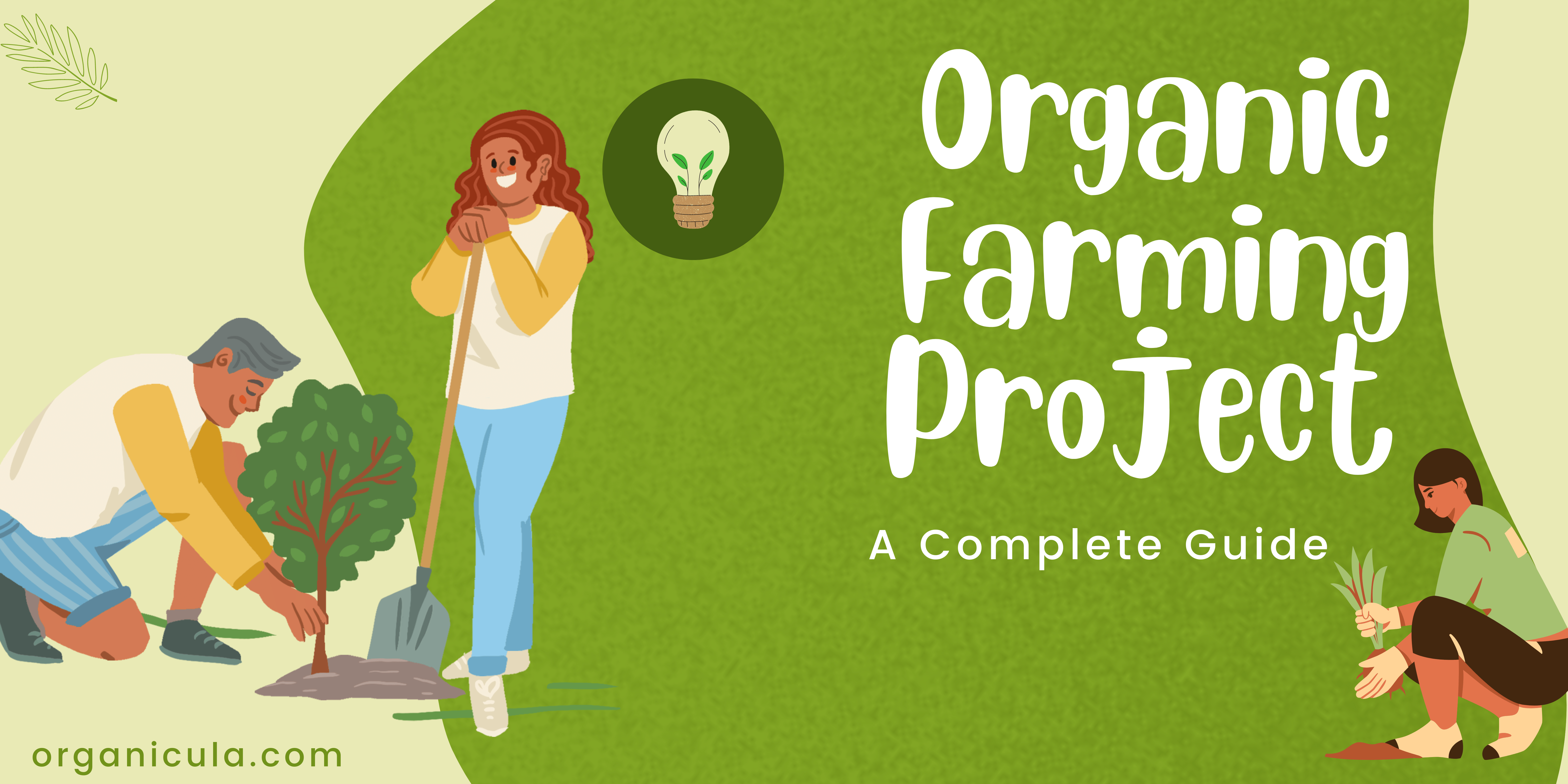Organic Farming Project: A Complete Guide
Organic farming is gaining favour in India as more people become conscious of its environmental and health advantages. Here are some facts on organic farming projects in India:
-
Government Initiatives:
The government of India has taken several initiatives to encourage organic farming in the country. The National Project on Organic Farming was launched in 2004 to encourage farmers to adopt organic farming methods and to give technical and financial help for their efforts. The project provides training, extension assistance, and certification services to farmers and encourages the development of value-added organic products. -
Farmer’s cooperatives:
Many farmer’s cooperatives have been established in India to boost organic farming and help farmers access their products’ markets. These cooperatives give farmers training, technical help, and certification assistance and help them connect with organic produce buyers. -
Private companies:
Private companies also sponsor organic farming projects in India. For example, some companies are performing with farmers to establish organic farming methods on a large scale, while others are concentrating on growing and marketing organic products. -
Non-government organizations (NGOs):
NGOs play a vital role in encouraging organic farming in India by providing education and training to farmers and funding research and development of organic farming methods. -
Market demand:
There is a growing demand for organic products in India, pushing the growth of the organic farming industry. Customers are becoming more health-conscious and desiring food free from harmful chemicals and pesticides. The popularity of organic food is growing among tourists visiting India, providing a new market for organic farmers.
The organic farming drive in India is rapidly growing, and there are many possibilities for farmers, companies, and individuals to get involved. Whether through government initiatives, farmer’s cooperatives, private companies, or NGOs, many aids are available for those interested in starting an organic farming project in India.
Some examples of organic farming projects in India:
-
Jaivik Kheti:
Jaivik Kheti is a farmer-run organic farming project in the state of Haryana that seeks to promote sustainable agriculture and provide farmers with training and support for their organic farming techniques. The project provides farmers access to markets for their organic crops and works to increase understanding of the advantages of organic farming among customers. -
Andhra Pradesh Organic Farming Association:
The Andhra Pradesh Organic Farming Association (APOFA) is a farmers’ cooperative that encourages organic farming in Andhra Pradesh. The association provides training and support to farmers and helps them connect with organic produce buyers. APOFA also works to raise awareness about the advantages of organic farming and to encourage the development of value-added organic products. -
Navdanya:
Navdanya is a non-government organization (NGO) that works to encourage sustainable agriculture and save the rights of farmers in India. The organization provides training and aid to farmers who want to transition to organic farming and helps them connect with markets for their organic produce. Navdanya also works to raise awareness about the advantages of organic farming and to boost the development of value-added organic products. -
The Greenfield Project:
The Greenfield Project is a private company that works with farmers to set up organic farming practices on a large scale. The company provides training and support to farmers and helps them attach with organic produce buyers. The Greenfield Project also works to raise awareness about the advantages of organic farming and to enable the development of value-added organic products. -
Bhu Sattva:
Bhu Sattva is an organic farming project focusing on developing and marketing organic products. The project works with farmers to establish organic farming practices and provides training and support to help them produce high-quality organic products. Bhu Sattva also works to raise understanding about the usefulness of organic farming and to encourage the development of value-added organic products.
These are just a few examples of organic farming projects in India, and many others are working to encourage sustainable agriculture and support farmers in their transition to organic farming. Overall, the organic farming industry in India is rapidly growing, and there are many opportunities for individuals and organizations to get involved.



